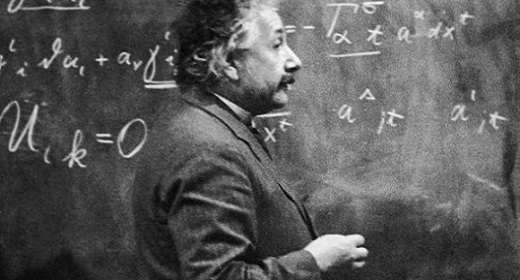by Avi Loeb: The ability to come up with truly revolutionary ideas is crucial—and extremely rare…
In athletics, the path along which runners sprint is dictated in advance. What the competition tests is the skill of the runners in traversing that path at the fastest speed. The primary task of scientific research, on the other hand, is to identify the right path to take.
But even though this holds true in principle, a sense of direction in science is often dictated by consensus, with young researchers competing, like athletes on a track, on their technical skills. This gives the false impression that mathematical virtuosity, for example, is the measure of success in theoretical physics.
At the beginning of my career in astrophysics, my mentor, John Bahcall, asked me about my computer skills. I told him that I only acquired the limited skills that were needed to solve the problems I encountered. He was stunned. Thirty-five years later, I can state with confidence that one can have a productive career with minimal computer skills. Based on my experience, coming up with attractive ideas for new research directions is a rare commodity that is as valuable as technical virtuosity for leading scientific research.
The ability to imagine new directions is surprisingly rare for many, but others have it in abundance. For great physicists like Albert Einstein, John Wheeler, Richard Feynman or Yakov Zel’dovich, it was an outstanding sense of direction that led to their success; whereas the accompanying mathematics was just a tool they had to pick up along the way—like experimentalists pick up instruments—in order to reach their goals. Feynman is quoted as saying: “If all mathematics disappeared today, physics would be set back exactly one week”.
Zel’dovich, a prolific Russian theorist who made discoveries in disciplines ranging from plasma physics to particle physics to black holes to cosmology, overflowed with ideas. Rashid Sunyaev, one of his former students, told me that many of Zel’dovich’s young collaborators became famous as a result of important papers they wrote with him. But once he passed away, they faded. The large shadows they seemed to cast simply created by Zel’dovich’s brilliance.
Unfortunately, this lesson is often forgotten in today’s world of theoretical physics, where mathematical gymnastics gets more attention than success in navigating to the right path based on empirical evidence. This is partly because the long stagnation in detecting new physics from particle accelerators has enhanced the popularity of complex mathematical structures such as string theory. But it is also because mathematical skills are easier to quantify on a short timescale, just like skill in athletics; whereas a good sense of direction takes a while to recognize, like a nose for fine wines.
This time lag can be perilous. When an innovative idea is ahead of its time, the experts often label it as “unlikely” and sometimes even “crazy.” Then, when the accumulating evidence starts to make it relevant, the experts say that the idea is trivial. And when evidence demonstrates beyond doubt that it is true, the same experts argue that they thought of it first.
This resistance to novel ideas also holds for imaginative experimental designs. A good example is gravitational wave astrophysics. When Rainer Weiss first proposed the LIGO experiment that ultimately detected gravitational waves, the idea was rejected even by the higher administration of his home university, MIT. But it eventually came to fruition thanks to Rich Isaacson, a visionary program director of gravitational physics at the National Science Foundation. Today you would struggle to find a physicist who ever doubted it. But current program directors will also tell you that the chance of getting a risky scientific project like LIGO funded are miniscule in the groupthink scientific culture of today.
In fact, it may be necessary for pioneers to face the headwind of rejection for a while, or their idea might eventually be credited to the mainstream. An innovator has to persevere through an initial denial phase, as Weiss did, during which the mainstream rejects the idea so publicly that the proposer can later wear the rejection as a badge of honor. Under more typical circumstances, when a new idea is simply ignored, there is a real danger that mainstream proponents will claim it for themselves after introducing some cosmetic variations to its presentation.
In hindsight, the paths that lead to scientific breakthroughs seem inevitable; they are carved indelibly into the landscape of ideas. But the ability to spot them first, follow their twists and turns, and keep going when fellow travelers shout that you are going nowhere—is the trademark of a truly exceptional scientist. Most importantly, this requires character and not just technical skills.















































